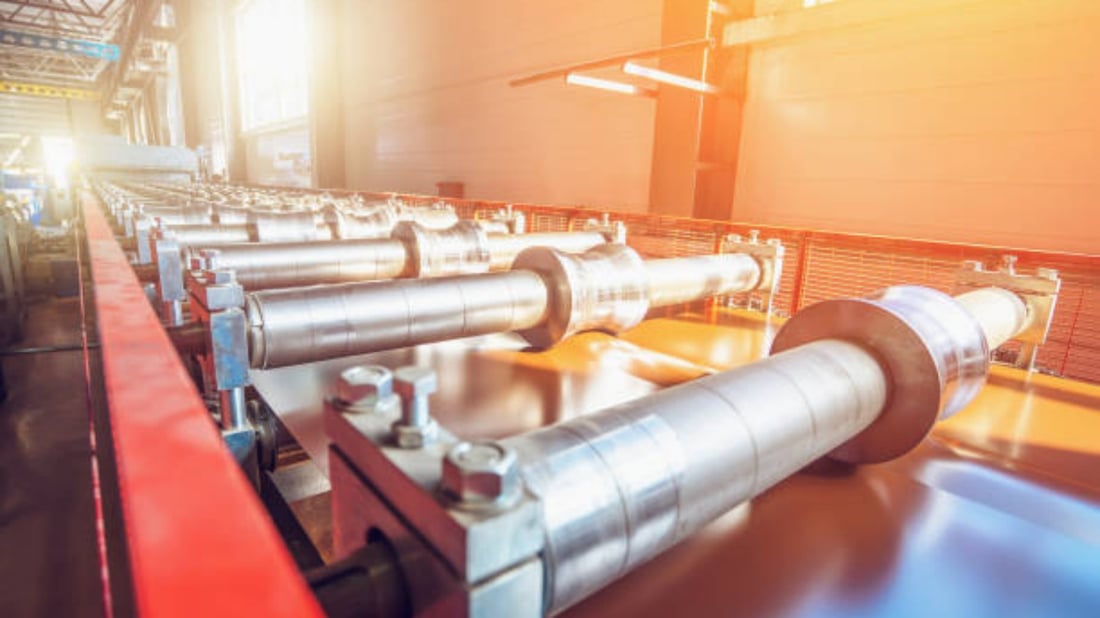The Ultimate Guide to roof sheet roll forming machines
Roof sheet roll forming machines are essential equipment for the production of high-quality roofing sheets. These machines use a continuous process to transform metal coils into perfectly shaped roofing panels with consistent dimensions. In this comprehensive guide, we will explore the various aspects of roof sheet roll forming machines, including their operation, benefits, applications, and important considerations.
1. Understanding Roof Sheet Roll Forming Machines
Roof sheet roll forming machines are specialized equipment used in the metalworking industry to produce roof panels with precise shapes and dimensions. These machines consist of a series of rollers that gradually shape a metal coil into the desired profile. The process is continuous, allowing for high-speed production of roofing sheets in various profiles and lengths.
2. How Roof Sheet Roll Forming Machines Work
The operation of a roof sheet roll forming machine involves several important steps. First, a metal coil is loaded onto the machine, and the leading edge is guided into the rollers. As the coil passes through the rollers, each set bends the metal incrementally, gradually forming it into the desired shape. The final step is cutting the formed sheet to the required length using a flying cutoff system. This continuous process ensures efficient production and consistent product quality.
3. Benefits of Roof Sheet Roll Forming Machines
Investing in a roof sheet roll forming machine offers numerous benefits for manufacturers in the roofing industry. Firstly, these machines enable high-speed production, allowing for large volumes of roofing sheets to be manufactured in a short period of time. Secondly, the continuous process ensures consistent product quality, minimizing variations in dimensions and shapes. Thirdly, roof sheet roll forming machines are highly versatile and can produce a wide range of profiles, giving manufacturers the flexibility to cater to different customer requirements.
4. Applications of Roof Sheet Roll Forming Machines
Roof sheet roll forming machines find applications in various industries, primarily in the construction and roofing sectors. These machines are used to produce roofing sheets for residential, commercial, and industrial buildings. The versatility of roof sheet roll forming machines allows for the production of different profiles, such as corrugated, standing seam, and trapezoidal panels. Additionally, these machines can also be used to manufacture other metal products, such as wall cladding, decking, and fencing.
5. Factors to Consider When Choosing a Roof Sheet Roll Forming Machine
When selecting a roof sheet roll forming machine, several factors need to be taken into consideration. Firstly, the desired production capacity should be evaluated to ensure the machine can meet the required output. Secondly, the material thickness and width range should be considered, as different machines have varying capabilities. Additionally, the flexibility to produce different profiles and the availability of customization options are important factors to consider. Finally, the reputation and reliability of the manufacturer should also be assessed to ensure long-term support and service.
6. Maintenance and Care for Roof Sheet Roll Forming Machines
To ensure optimal performance and longevity of roof sheet roll forming machines, regular maintenance and care are essential. This includes routine inspections, lubrication of moving parts, and cleaning of debris or metal shavings. It is also important to follow the manufacturer's guidelines for maintenance intervals and recommended procedures. By investing time and effort into proper maintenance, manufacturers can minimize downtime and maximize the lifespan of their roof sheet roll forming machines.
7. Future Trends in Roof Sheet Roll Forming Machines
The metalworking industry is constantly evolving, and roof sheet roll forming machines are no exception. One emerging trend is the integration of advanced automation and control systems into these machines. This enables higher levels of precision, efficiency, and productivity. Another trend is the development of eco-friendly materials and processes, which aim to reduce the environmental impact of roofing sheet production. As technology continues to advance, manufacturers can expect even more innovative features and capabilities in future roof sheet roll forming machines.
8. Common Challenges in Roof Sheet Roll Forming
While roof sheet roll forming machines offer numerous benefits, there are also some common challenges that manufacturers may face. One challenge is the potential for material deformation or springback, which can affect the accuracy of the formed profiles. Another challenge is maintaining consistent product quality, especially when dealing with variations in material properties or thickness. Additionally, machine downtime due to maintenance or repairs can impact production schedules. However, with proper training, maintenance, and troubleshooting procedures in place, these challenges can be effectively managed.
9. Choosing the Right Manufacturer for Roof Sheet Roll Forming Machines
When considering the purchase of a roof sheet roll forming machine, choosing the right manufacturer is crucial. It is important to select a reputable manufacturer with a track record of delivering high-quality machines and providing excellent after-sales support. Researching customer reviews, visiting manufacturing facilities, and evaluating the manufacturer's expertise in the industry are all important steps in the selection process. By partnering with the right manufacturer, manufacturers can ensure a seamless integration of roof sheet roll forming machines into their production processes.
10. Conclusion
Roof sheet roll forming machines are indispensable tools for the production of high-quality roofing sheets. They offer numerous benefits, including high-speed production, consistent product quality, and versatility in profile options. When choosing a roof sheet roll forming machine, factors such as production capacity, material range, and customization options should be considered. Regular maintenance and care are essential to maximize the lifespan of these machines. By staying informed about future trends and addressing common challenges, manufacturers can leverage the full potential of roof sheet roll forming machines to meet the evolving demands of the roofing industry.

